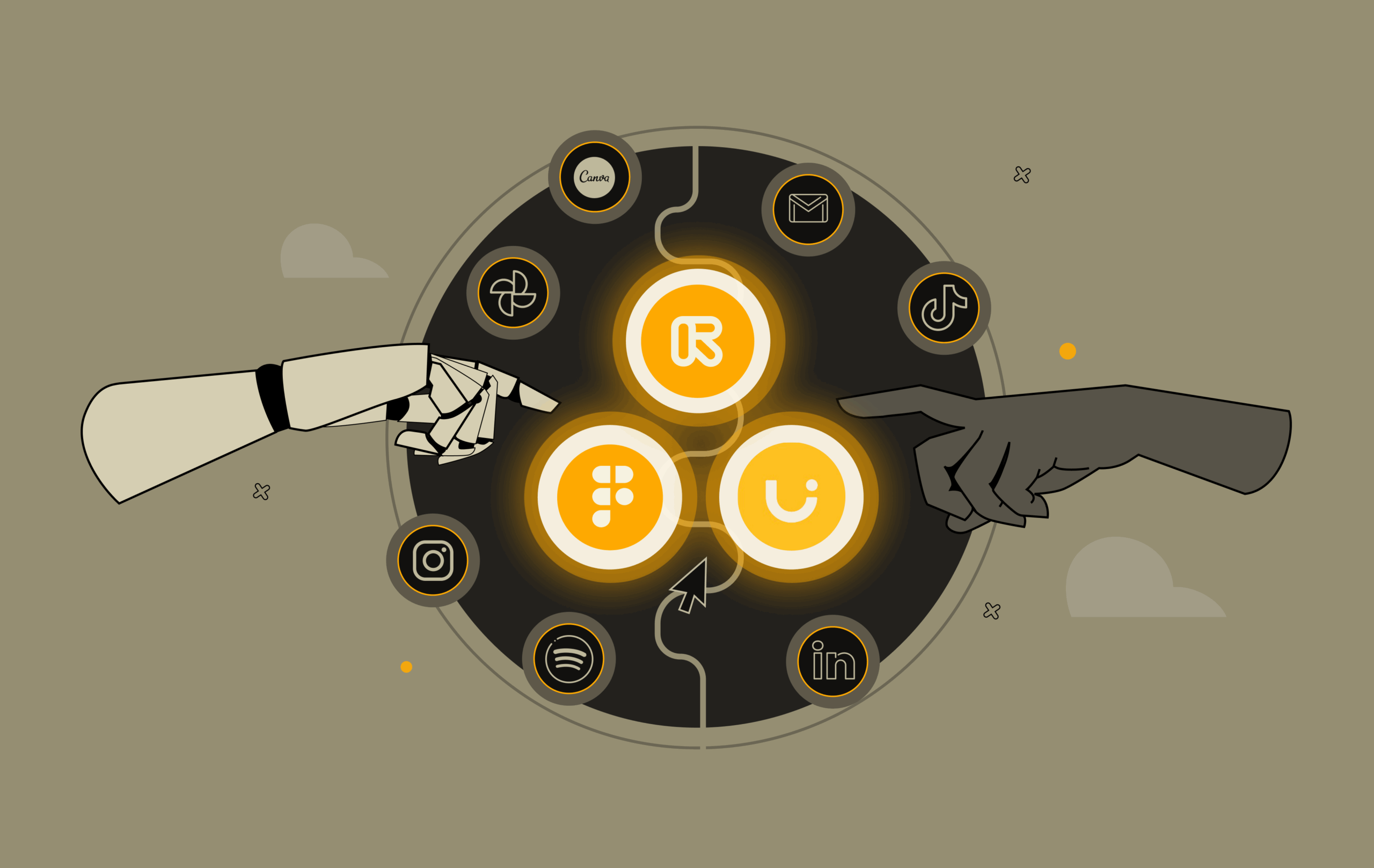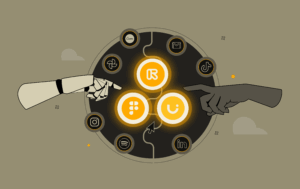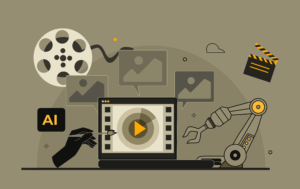For years, Artificial Intelligence (AI) has been discussed as a technology of the future — something that would eventually transform our lives, businesses, and the way the world functions. But that future has arrived. AI is no longer a distant possibility; it’s already embedded in the tools we use, the decisions we make, and the services we rely on. From healthcare and education to marketing and design, AI is reshaping the landscape of almost every industry — and it’s only getting smarter.
You’re Already in It
Across industries, professionals are no longer just adapting to AI — they’re being accelerated by it.
- Designers use AI to automate layouts and generate creative ideas.
- Writers and marketers are racing against ChatGPT to draft content and generate ideas.
- Developers speed up coding, testing, and debugging with AI tools.
- Customer service agents are being replaced or supported by AI chatbots.
- Project managers use AI to summarize meetings, write reports, and plan sprints.
What used to be solo work is now a collaboration between human and machine. The real skill isn’t doing more — it’s doing better and smarter with AI.
📉 Everything Changed Quietly
No fireworks. No breaking news headline. AI just… showed up.
- Gmail started finishing your sentences.
- Spotify began curating playlists based on your mood.
- Google Photos grouped your memories automatically.
- LinkedIn drafts your replies.
- Canva generates designs with a single prompt.
- Instagram and TikTok recommend content with uncanny accuracy.
These subtle changes didn’t scream “AI revolution,” but together, they’ve redefined the baseline for usability, personalization, and productivity.
How AI Is Transforming Industries
1. Healthcare
AI is revolutionizing the healthcare industry by improving diagnostic accuracy, predicting patient outcomes, and even assisting in surgeries. Tools like AI-powered imaging analysis can detect diseases such as cancer earlier than traditional methods. Virtual health assistants are helping patients manage medications and schedule appointments, reducing strain on healthcare systems.
2. Education
In the education sector, AI is enabling personalized learning experiences. Platforms powered by AI can assess a student’s strengths and weaknesses and adapt content accordingly. Tools like Grammarly or AI tutors provide real-time feedback, while administrative automation helps educators manage grading, schedules, and communication more efficiently.
3. Business and Marketing
AI is at the heart of data-driven marketing. It analyzes customer behavior, predicts trends, and helps businesses deliver hyper-personalized content. In operations, AI is being used to automate workflows, manage inventories, and even forecast demand. In customer service, chatbots are available 24/7, resolving queries instantly and improving customer satisfaction.
4. Design and Creativity
AI is not just about logic and numbers — it’s stepping into the creative realm too. Designers are using AI tools like DALL·E, Midjourney, and Galileo to generate layouts, write copy, or even design websites and app screens. This collaboration allows creatives to focus on strategic and high-level thinking while AI handles repetitive or data-heavy tasks.
5. Transportation and Mobility
Self-driving technology, traffic predictions, and smart logistics are all AI-driven. Companies like Tesla, Waymo, and Uber are exploring autonomous vehicle solutions, which could redefine urban mobility and safety standards.
🧰 The AI Tools Reshaping UX/UI Design
AI isn’t just impacting content or code — it’s redefining how digital products are designed.
UX and UI designers are increasingly using AI not just for speed, but for smarter decision-making, rapid prototyping, and seamless collaboration. Here are a few tools leading the charge:
✨ Figma AI
Figma’s built-in AI features are changing how designers interact with the canvas:
- Auto-generate UI components based on plain text prompts.
- Instantly edit, resize, or update layouts with natural language.
- Generate content for wireframes, buttons, and placeholder copy on the fly. Figma AI helps designers spend less time on repetitive tasks and more time on creative thinking.
🚀 Relume
Relume’s AI Website Builder allows you to:
- Generate full site maps and wireframes from a single prompt.
- Export responsive layouts directly into Figma.
- Create high-quality designs in minutes, not days. This tool is empowering freelancers and agencies to prototype and deliver faster than ever.
🎨 Uizard
Uizard turns ideas into designs with almost magical ease:
- Convert hand-drawn sketches into interactive wireframes.
- Generate UI components and screens with AI-powered suggestions.
- Perfect for rapid MVPs and pitch decks.
🧠 The Human Edge
Even in a world filled with intelligent algorithms, human judgment and creativity still matter most.
AI can draft, design, and analyze. But it cannot:
- Feel human emotions
- Understand deep cultural context
- Act with empathy
- Dream beyond data
- Make ethical decisions
That’s why the most valuable professionals today are those who blend tech literacy with emotional intelligence. The future belongs to those who can lead with humanity in an AI-powered world.
✅ Final Thoughts: Don’t Wait — Adapt Now
AI is no longer a thing of the future — it’s here, it’s active, and it’s evolving fast. As it becomes more deeply integrated into our daily lives and industries, understanding how AI works, recognizing its limitations, and learning how to use it ethically will soon be as essential as traditional digital literacy. So don’t sit back waiting for the perfect time to learn or adapt; the time is now. The tide has already risen; it’s up to you to learn how to swim with it — or better yet, surf the wave. You don’t need to outwork AI; you need to out-think it, out-feel it, and most importantly, out-human it.
Reference:
https://en.wikipedia.org/wiki/Artificial_intelligence
https://www.britannica.com/technology/artificial-intelligence/Methods-and-goals-in-AI
https://news.microsoft.com/source/tag/ai/
Leveraged AI assistance for the ideation and research process.









